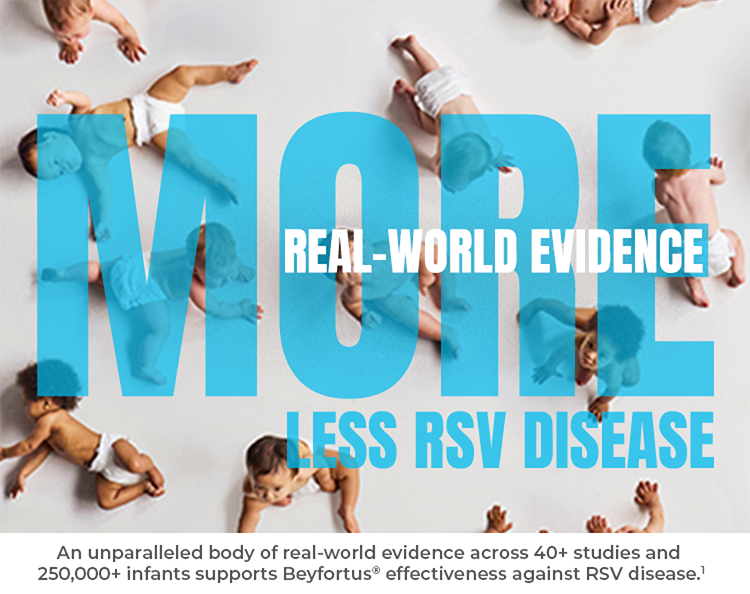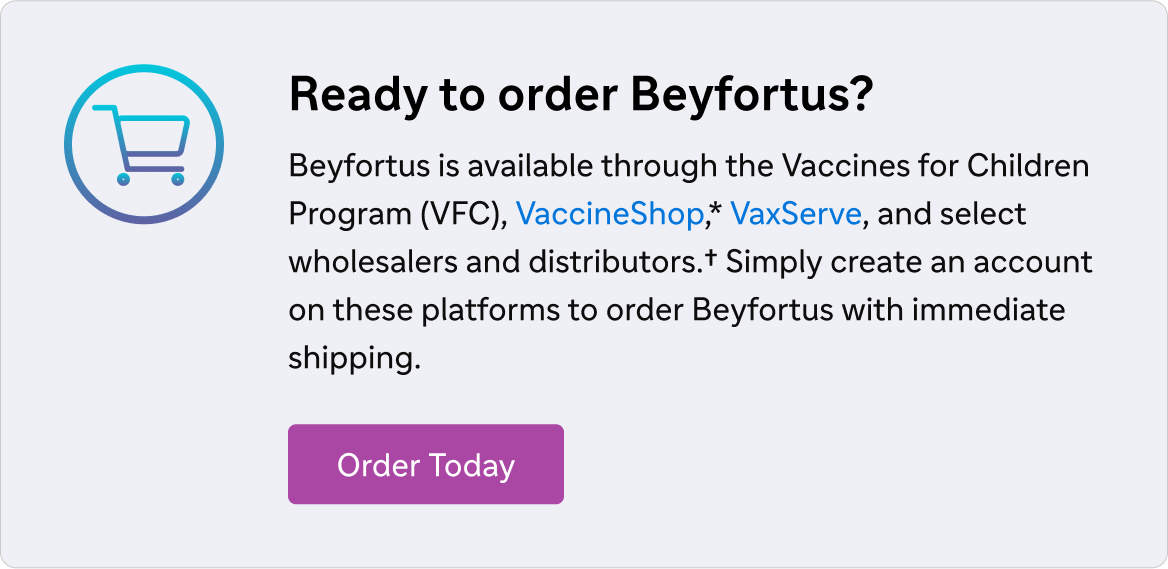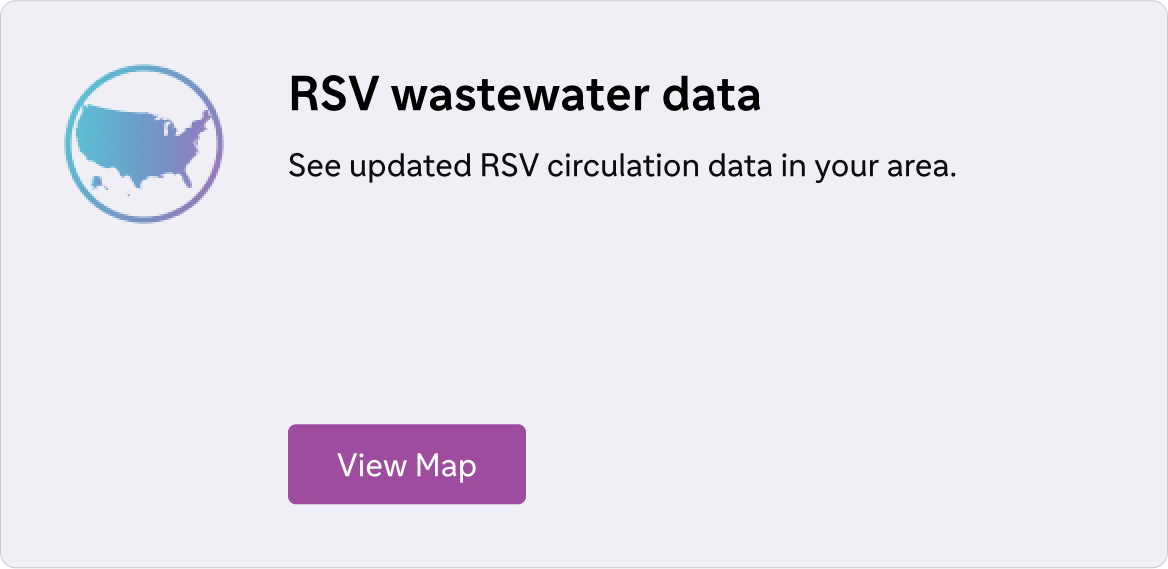6 million+ infants immunized, with data from real-world and clinical studies1*

Beyfortus® (nirsevimab-alip) is the first long-acting antibody indicated for the prevention of respiratory syncytial virus (RSV) lower respiratory tract disease in neonates and infants born during or entering their first RSV season, and children up to 24 months of age who remain vulnerable to severe RSV disease through their second RSV season.2
*Supported by global estimated exposure based on calculation from sales volume data (01 September 2023 through 31 October 2024). The number of children exposed is estimated based on distribution of recommended dose of Beyfortus administered, considering body weight, season of administration (1st or 2nd), and immunization plan.1
*All direct customers on VaccineShop will receive a 2% discount and 90-day billing terms. Excludes wholesale, distributor, and public orders.
†Beyfortus 50 mg and 100 mg Injection is available to purchase through wholesalers and distributors. Please call 1-800-VACCINE (1-800-822-2463) for more information.
*Epidemiology research will further define when local RSV seasons start.
†Recommendation for first season only. Please consult the accompanying Prescribing Information for complete dosing information, including children undergoing cardiac surgery with cardiopulmonary bypass and for those entering a second RSV season who remain at increased risk.
Contraindication
Beyfortus is contraindicated in infants and children with a history of serious hypersensitivity reactions, including anaphylaxis, to nirsevimab-alip or to any of the excipients.
Warnings and Precautions
- Hypersensitivity Reactions Including Anaphylaxis: Serious hypersensitivity reactions have been reported following Beyfortus administration. These reactions included urticaria, dyspnea, cyanosis, and/or hypotonia. Anaphylaxis has been observed with human immunoglobulin G1 (IgG1) monoclonal antibodies. If signs and symptoms of anaphylaxis or other clinically significant hypersensitivity reactions occur, initiate appropriate treatment.
- Use in Individuals with Clinically Significant Bleeding Disorders: As with other IM injections, Beyfortus should be given with caution to infants and children with thrombocytopenia, any coagulation disorder or to individuals on anticoagulation therapy.
Important Safety Information
References: 1. Data on File. Sanofi. 2. Beyfortus (nirsevimab-alip). Prescribing Information. Sanofi.


